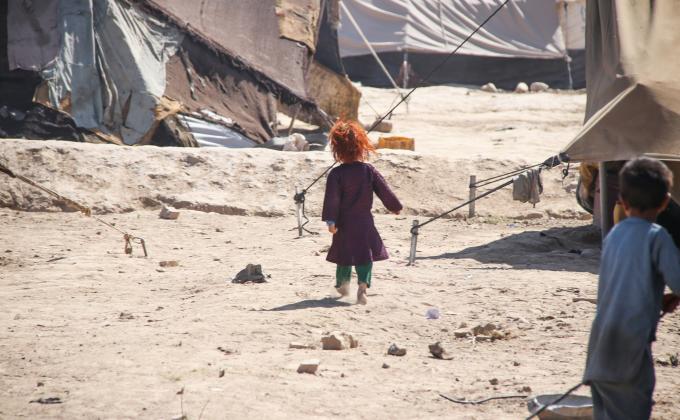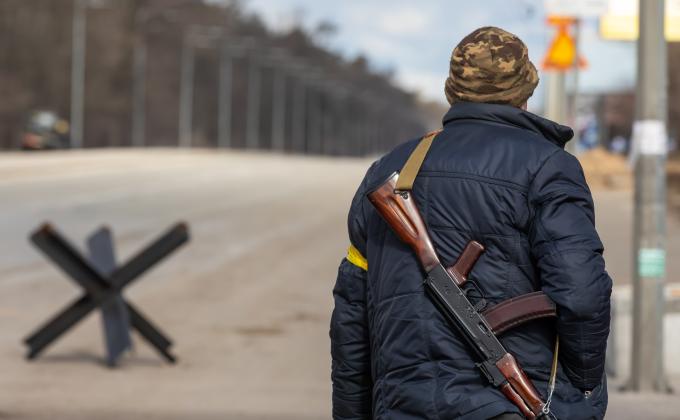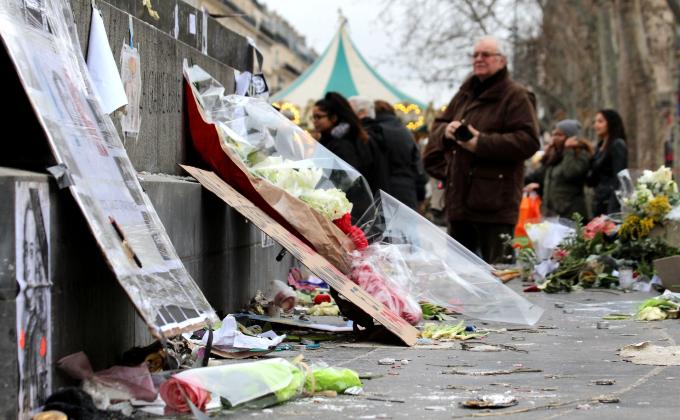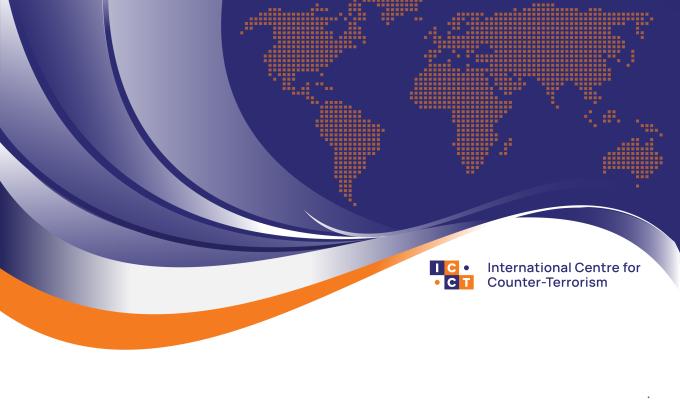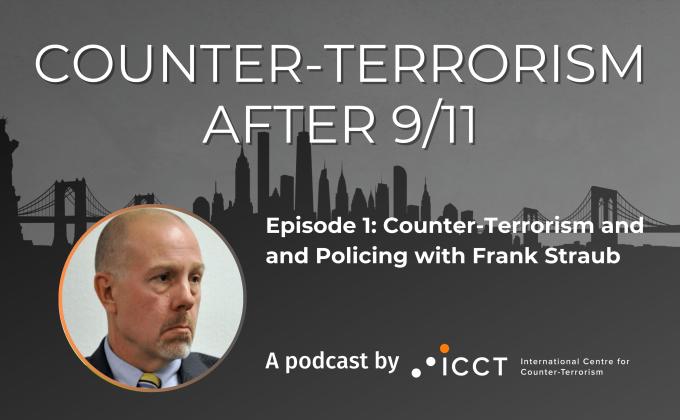Just before the opening of 78th UN General Assembly, Canadian Prime Minister Justin Trudeau announced that his government had obtained credible information that the Indian government was involved in the murder of Hardeep Singh Nijjar in British Columbia, Canada. The intelligence apparently came from intercepted electronic communications among Indian diplomats. Canada was also assisted with intelligence provided by the Five Eyes (FVEY) partners, including the United States (US), making India’s denial of involvement far less plausible.
Nijjar was an Indian Sikh who moved to Canada in 1997. From Vancouver, he ramped up his involvement with Sikh independence and headed up a Sikh house of worship. New Delhi saw Nijjar’s activities as far more nefarious, accusing him of leading the Khalistan Tiger Force (KTF), a militant outfit designated by India as a terrorist group, in February 2023. Nijjar was involved in the preparation of a non-binding referendum for Sikh independence in British Columbia in cooperation with the US-based Sikh for Justice (SFJ), a pro-Khalistan organization banned by India in 2020. At one point Nijjar was arrested by the Royal Canadian Mounted Police (RCMP), although he was not charged. Still, he was placed on the no-fly list in Canada. Nijjar drew the ire of the Modi government after his repeated criticisms of its “Hindu-first policies.”
As a result of the fallout, India has suspended visa services for Canadians for an indefinite period and requested Canada remove two-thirds of its diplomats, while the Canadian government has postponed a trade visit to India. So far, several states have expressed concern, but have stopped short of condemning India largely due to the country’s growing clout and New Delhi’s position as a bulwark to China. In an era of great power competition, realpolitik is back with a vengeance.
The Nijjar incident has brought the relationship between Canada and India to a nadir and stirred up memories of tensions between New Delhi and Ottawa that have festered for decades. This analysis provides a brief background of Sikh extremists in Canada, the Khalistan movement, the rise of foreign interference, the allegation of targeted killings, and the harbouring of alleged ‘terrorists’, before offering some concluding remarks. This article is the first to offer a perspective on the issue through a lens of transnational repression, and why there is likely to be an increase in this tactic going forward.
Sikh extremists in Canada
Canada has the world’s largest Sikh diaspora. 770,000 Sikhs account for 2.1% of Canada’s population, whereas in India, they account for 1.7% of the population. Canada and India have a complicated history with Sikh extremism. In 1985, Babbar Khalsa International (BKI), a Khalistan separatist group, was implicated in the bombing of an Air India flight 192 from Montreal to New Delhi which resulted in the deaths of 329 people – the largest loss of life in a terrorist attack in Canadian history. India had warned Canada about the possibility of a terrorist attack prior to the bombing. In 2018, a Canadian delegation visiting India included Jaspal Atwal, a former member of the Sikh extremist movement who was convicted for the attempted murder of an Indian cabinet minister on Vancouver Island. For years, India has accused Canada of failing to take action against Sikh ‘terrorists’.
More recently, the ties between Sikh gangs and pro-Khalistan movements in Canada have strengthened. In 2022 a Punjabi rapper Sidhu Moose Wala who had emigrated to Canada and returned to India to join state elections in Punjab was shot death in India. His murder has been claimed by Canada-based gangster Goldy Brar. Several Sikh gang members are also pro-Khalistan supporters and vice versa. SFJ has also expressed support of some of the gang members, obfuscating the distinction between organized crime and separatist groups. Just days after Trudeau's announcement, another gangster and pro-Khalistan supporter Sukha Duneke was killed in Winnipeg, Canada. He was wanted for multiple violent crimes in Punjab and his murder has been claimed by the Bisnoi gang.
The Khalistan movement
The Khalistan movement, which is supported by a minority of Sikhs, seeks to establish its own independent and autonomous state of Khalistan in India. Due to growing socio-economic grievances against India, the call for a separate Sikh state has grown. The Khalistan movement peaked in 1984 when Prime Minister Indira Gandhi launched Operation Blue Star, a military operation aimed at to removing Sikh militants from the Golden Temple in Amritsar and leading to the death of a stated 500 Sikhs, though the death toll was much higher according to independent sources. The backlash was swift, resulting in outrage among the Sikh community. Later that same year, Indira Gandhi was assassinated by two of her Sikh bodyguards. In the days that followed nearly 3,000 Sikhs were killed and wounded in rioting. Many Sikhs, some with anti-India sentiments, fled India and emigrated to Canada, amongst other countries.
Over time, the Khalistan movement ebbed until its revival in recent years, mainly among the Sikh diaspora, and to a limited extent within India itself. India adopted three farm laws in 2020, attempting to deregulate, but increasing the power of big corporations. A wave of protests by farmers from Punjab, known as the wheat bowl of India, followed and led to the storming of Red Fort in New Delhi, where the Indian flag is hoisted annually on Independence Day. The Bharatiya Janata Party (BJP) has claimed that protests were anti-nationalistic and connected to the Khalistan agenda, thus attempting to justify the use of draconian security measures against protestors. The Sikh diaspora maintains a kinship with the farmers because of the intergenerational transmission of trauma among Sikh communities abroad, recalling the partition in 1947 and the violence in 1984.
Ultimately Modi withdrew the laws but responded to protests by shutting down the internet for the entire city. India has often resorted to censorship to quell dissent and was responsible for 87 of 187 internet blackouts in 2022. During the hunt for Amritpal Singh, an alleged supporter of the Khalistan movement, the Internet was also shut down in Punjab in April 2023. In line with Modi’s Hindu nationalistic agenda, relic laws are used to curtail freedom of speech and peaceful assembly.
Harbouring ‘terrorists’
During a press conference, the Indian Ministry of Foreign Affairs said Canada has a growing reputation as a safe haven for 'terrorists, for extremists and for organized crime.' In 1982, the extradition request of Talwinder Singh Parmar, the founder of the BKI - and the mastermind behind the Air India bombing – was allegedly denied by the father of Justin Trudeau, Pierre Trudeau. In 1987, Canada and India concluded a bilateral extradition agreement that allows a requested state to refuse extradition if it is a political offence, or not made in good faith. It further provides a long list of offences such as terrorism, manslaughter, kidnapping, or hostage-taking, which are excluded as grounds to refuse extradition.
India has reached out to Canada regarding multiple extradition requests of alleged Sikh extremists - including Nijjar in 2022, which was cancelled due to his death. In addition, several Interpol red notices have been issued at the request of India – also for Nijjar, requesting all law enforcement to arrest and detain a person pending an extradition request. There are growing concerns regarding the functioning of the justice system in India under Modi. Yet, at the same time, the refusal to arrest and extradite an alleged terrorist raises the question of whether double standards are being applied, and is the result of realpolitik? Considering the ongoing tensions between Canada and India, the extradition requests made by India, provided it is supported by proper documents and investigations, could be considered by Canada under strict conditions. This could include that evidence is shared with Canadian authorities, a request to participate in the investigations, a request that the sentence could be served in Canada, and assurances that the death penalty would not be imposed. However, Canada is considering withdrawing from the extradition agreement with countries, including India, that do not uphold international human rights standards.
Foreign interference & transnational repression
It is important to situate transnational repression within the hierarchy of rogue actions conducted by States. Transnational repression is a form of foreign interference practiced by different types of states, including democracies, anocracies, and autocracies. Targeted killing, as seemingly occurred with the case of Nijjar, is a form, albeit the most extreme form, of transnational repression.
As a broader category, foreign interference in Canada includes, “harmful activities undertaken by foreign states, or those acting on its behalf, that are clandestine, deceptive, or involve a threat to any person to advance the strategic objectives of those states to the detriment of Canada’s national interests.” Examples includes threats, harassment or intimidation by foreign States against individuals and targeting officials to influence policy.
Many Sikhs in Canada are not surprised with the allegations linking the Indian government to the killing of Nijjar and have for years believed that India meddled in Canadian affairs. Chinese dissidents in Canada, especially human right activists, are increasingly harassed and intimidated by Chinese authorities. Although the Islamic Revolutionary Guard Corps has been banned by Canada, several Iranian dissidents claim they are being monitored by the Iranian regime, although it remains difficult to determine to extent of foreign interference, and what authorities could do. This raises the question of whether the government of Canada/the RCMP have failed to take these signs more seriously and if they could have done more in providing security to prevent harassment, intimidation, and possibly the murder Canadian citizens with migrant backgrounds. Considering that the statement of Trudeau to House of Commons specifically refers to continued security for all Canadians, and Canada having a fast-growing immigrant community, it needs to invest in intelligence capabilities to prevent and protect its citizens from foreign interference.
In March 2022, the European Parliament recognized the need to address foreign interference, information manipulation, and disinformation in democratic processes in the EU. It describes, but does not provide a definition of, different forms of foreign interference ranging from covert donations and instrumentalizing migrants, to threatening journalists, researchers and CSOs. In June 2023, the Parliamentary Assembly of the Council of Europe recognized that transnational repression - the assassination, intimidation or harassment by a State of its dissidents, citizens, and human right activists living abroad - is a growing concern that undermines the rule of law and human rights.
In the US transnational repression - the harassment, intimidation by a foreign government of their citizens or US citizens with ties to the foreign government - is being committed by China and Iran, as well as other countries. The Rwandan government also targets members of diaspora through harassment, intimidation, enforced disappearances and targeted killings. There are myriad forms of transnational repression, including, but not limited to stalking, harassment, hacking, assaults, attempted kidnapping, forcing or coercing the victim to return to their home country, threatening or detaining family members in their home country, freezing financial assets, and online disinformation campaigns. Frequent targets of transnational repression include political and human rights activists, dissidents, journalists, political opponents, and religious or ethnic minority groups. The FBI apparently already warned that three US Sikh leaders were in danger after the murder of Nijjar.
Targeted killings
If the murder of Nijjar was indeed committed by a foreign state, it would qualify as a targeted killing. Targeted killings in peacetime are rarely lawful.
Under article 2(4) of the UN Charter States should refrain from the use of force against the territorial integrity or political independence of any state, this also applies to countries that target alleged terrorists. Countries that rely on targeted killings of alleged terrorists tend to focus on the justifications of the killing, and on the implications for peace and security, instead of the lawfulness of the act itself. Terrorism does not constitute a different category under international law, nor does it provide a justification to carry out targeted killings. Several countries have a long track record of targeted killings of alleged terrorists, such as the US in Pakistan and Yemen, without explicit consent. The lawfulness of the targeted killing of Iranian commander of the Islamic Revolutionary Guard Corps Quds Force Qassem Soleimani in Iraq, and Ayman al-Zawahiri, al-Qaeda's leader in Afghanistan, have also been challenged. In both cases the killings were considered justified by the U.S. because of their past human rights violations and the threat of an ‘imminent’ armed attack.
Other cases have included The Washington Post journalist Jamal Khashoggi who was assassinated by agents of the Saudi government in Istanbul, Turkey, in October 2018. Alexander Litvinenko, a former KGB colonel that fled to the UK and openly criticized Putin, and Sergei Skripal who was a double spy and considered a traitor by Putin, were both poisoned by agents of the Russian state in the United Kingdom. Iran has a long track record of targeting Iranian dissidents as well as Israeli and Western officials. Israel also has a track record of targeted killings, mainly Iranian officials on foreign soil outside an armed conflict. The killing of Nijjar would be the first time that India allegedly has carried out a targeted killing on foreign soil.
The practice of targeting killings, also referred to as extrajudicial killings, is very controversial. It violates the territorial integrity, it violates the right to life, and could be in violation of the use of force and qualify as an armed attack. If the killing of one individual does not meet the minimum threshold to constitute an unlawful use of force, it may open the door for the countries to carry out (more) targeted killings against political dissidents, human rights activists, or alleged ‘terrorists.’
However, for a targeted killing to qualify as an armed attack, a certain level of gravity would be required. The accumulation of events like the assassination of Litvinenko and attempted assassination of Skripal by Russia could meet such a threshold. If the use of force on foreign soil would meet the threshold of an armed attack, the flipside is that there may be justifications that exclude unlawfulness. States that resort to targeted killings often invoke the right to self-defence as primary justification, although the response needs to meet the necessity and proportionality criteria. Anticipatory self-defence, a broader interpretation of self-defence, is often asserted by States in the context of countering terrorism as justification for targeted killing to pre-empt an imminent attack.
A targeted killing is a clear violation of the right to life. The statements of Trudeau and opposition leaders have not raised this issue. As aptly explained by Milanovic, the reason for this relates to the extraterritorial jurisdiction of human rights, which is still not embraced by all countries. As a rule, States are obliged to respect the rights of those on their territory, with the exception of when a State exercises jurisdiction abroad through effective control over territory or individuals. This means that Canada, too, could be held accountable for violating the human rights of individuals abroad. One example of this is that Canada could be held responsible for violating the human rights of Canadian citizens who are still detained in northeast Syria, making it unlikely they would raise this issue.
The main argument put forward by Trudeau is that by killing Nijjar, India has violated Canadian sovereignty. States are rarely held accountable for targeted killings. One exception is France which was held accountable for the sinking of the Rainbow Warrior ship in Auckland, which was campaigning against nuclear testing by France in Mururoa. After the arrest of the two French agents by New Zealand, France could no longer deny any involvement. The two French agents, who posed as honeymooners, were convicted and sentenced to 10 years. France demanded the release of the two agents, and New Zealand claimed compensation. At the request of both the countries, the UN Secretary General mediated and ruled that France should make an apology, pay $7 million in reparations to New Zealand, and that the French agents will be transferred to an isolated island for detention for three years. In 1990 an Arbitral Tribunal concluded that France breached the ruling by removing and not returning the two agents for medical reasons without the consent of New Zealand from the atoll Hao in the Pacific where they were serving their sentence.
Conclusion
If the allegations of the involvement of Indian state agents in the killing of Nijjar are true, India has clearly crossed a line and joined an ever-growing list of countries that resort to the unlawful use of force and targeted killings. If the targeted killing is ultimately attributed to India, Canada could try to hold India accountable by taking the matter to the International Court of Justice, as both countries have accepted the jurisdiction of the court (although India did make a reservation).
There is no universally accepted definition of foreign influence, foreign interference, or transnational repression, making it difficult to determine what is (un)lawful, even if it is considered undesirable. Transnational repression is not yet recognized under international law, and because transnational repression could also include targeted killings, it risks conflating the applicable legal frameworks of both issues. Furthermore, without legal definitions, measures to prevent foreign interference or transnational aggression from authoritarian countries could restrict freedom of speech, peaceful assembly, and association – the very bedrock of a democratic society.
Countries with large diasporas from authoritative countries where violent extremism is rising, and human rights are being clamped down on, should invest in understanding the political tensions that are at play in the home countries. This should occur regardless of whether these persons have adopted the nationality of the host country. The diaspora can be threatened, harassed, or intimidated, but can also be instrumentalised by a foreign government to exert influence or interference. Foreign interference, transnational repression, and targeted killings on foreign soil are likely to increase because it is not only easier due to technology but also because States are rarely held accountable.
Photocredit: Stephen Beaumont/Shutterstock



